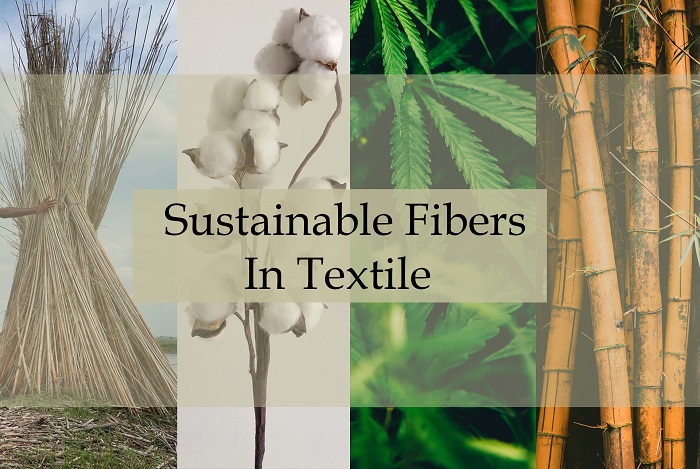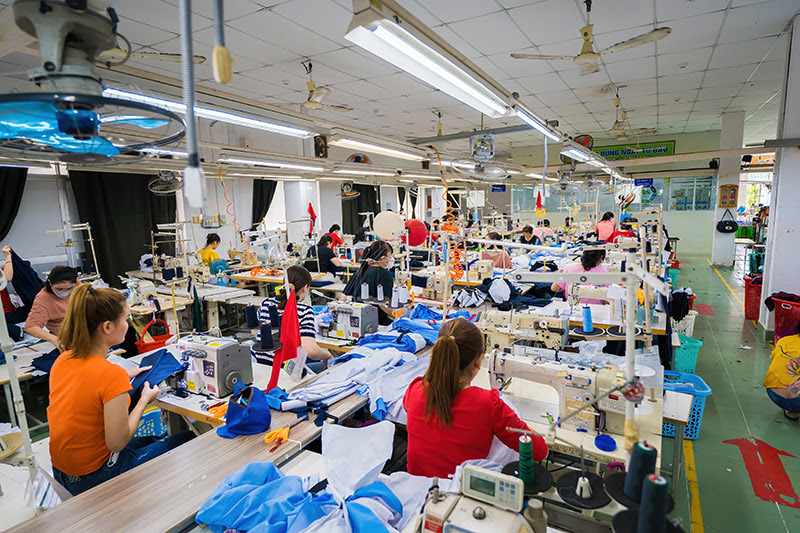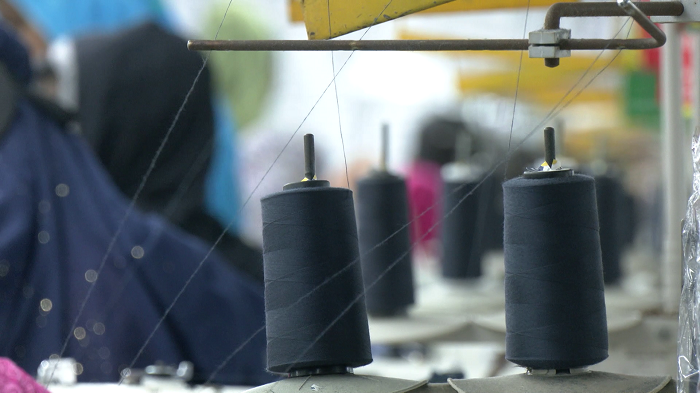Sympatex will present its innovative sustainability solutions at ISPO 2024, located in the Sustainability Hub (Hall A2). The company will highlight its Digital Fabric Library and Fiber2Fiber initiative, both key elements in driving a sustainable future for the textile industry.
The Digital Fabric Library offers transparent, digital access to material data, empowering sustainable product development decisions. This tool supports Sympatex’s fiber-to-fiber strategy, setting new industry benchmarks for circularity in textile production. By providing virtual access to a wide range of materials, it reduces physical resource consumption and carbon dioxide emissions related to fabric shipping.
On December 3, Carmen Keim, Colorist and Digital Pioneer at Sympatex, and Helena Gillerblad, PR and Communication at Sympatex, will lead the Greenroomvoice Sustainability Tour. Together with Greenroomvoice, they will showcase ten innovative partners presenting sustainable solutions at the hub.
A major highlight is Sympatex’s Fiber2Fiber concept, designed to close the loop on textile waste. This initiative recycles polyester fibers from discarded clothing, transforming them into high-quality materials for new fabrics. By embracing circular economy principles, Sympatex reduces resource consumption and supports the transformation of textile waste into valuable resources.
Kim Scholze, CSMO at Sympatex, emphasizes that sustainability is essential for the textile industry's future. The company remains committed to innovation by introducing new Fiber2Fiber products annually, advancing efforts toward a greener and more sustainable industry.
Sympatex invites all ISPO visitors to explore its Sustainability Hub poster and learn about its innovative solutions for a circular, digital, and sustainable textile future.
In a meeting held on Nov 18, 2024 in Uttara, Dhaka with Alexandre Saus-Salas, Head – Sourcing, C&A, Anwar Hossain, Administrator, Bangladesh Garment Manufacturers and Exporters Association (BGMEA) explored the possibility of a collaboration between the two parties to enhance the global competitiveness Bangladesh’s RMG sector.
Both leaders also discussed about the current status of the Bangladesh's ready-made garment (RMG) industry, shifting global market trends, and potential opportunities for business expansion.
Providing an overview of the significant transformations within the country's apparel sector, Hossain emphasised on Bangladesh's leadership in global decarbonisation initiatives and its dedication to ethical sourcing practices. The nation currently holds the title for the highest number of green garment factories globally, with 230 factories certified by the US Green Building Council (USGBC) under the LEED program, he said. Additionally, more than half of the top 100 LEED-certified factories worldwide are based in Bangladesh.
Highlighting Bangladesh’s strategic move toward high-value fashion items, including synthetic fiber garments, Hossain encouraged C&A to expand its sourcing of premium products from the country. He also informed the company’s delegation about the ongoing investments in Bangladesh’s backward linkage industry, which are strengthening the competitiveness of the RMG sector.
Nike has launched a new sneaker collection tilted, ‘Air Max Muse’ for women. Embodying futuristic boldness, this collection has been developed using computational design by Nike footwear teams.
Can Eldem, Footwear Designer, Women’s Sportswear, Nike says, the brand’s aim was to design an entirely new Air Max model focusing on both expression and comfort. It aimed to make the silhouette sleek, beautiful and bold — while offering the kind of innovation and cushion that women expect from the Air Max franchise.
Sported by Nike athletes Jordan Chiles and Qinwen Zheng along with stylist Veneda Carter, these new sneakers have softly exaggerated proportions with their shape drawing attention to the iconic Air technology in the heel. The Air unit of these shoes is surrounded by a sleek, semi-gloss finish to further train focus on its namesake technology. A heightened arch adds a further distinctive, fashion-forward touch to them.
Serving as a foundation for diverse design expression, a molded synthetic leather overlay allows the Air Max Muse to adapt to ever-changing style trends. The upper showcases a mix of textures and finishes, creating a striking contrast that makes the shoe pop. Blending soft touch points with technical details, the Air Max Muse is a versatile sneaker suitable for any occasion. The collection will initially launch with a striking silver metal colorway, with a wider range of colors and textures set to follow throughout 2025, offering a spectrum of styling possibilities.
The brand aimed to explore how the finishes of the Air Max Muse could enhance the design while giving women a variety of choices that reflect their evolving style and mood, starting with the silver metal colorway, explains Marya Chan, Materials Design Director, Nike Sportswear.
The Air Max Muse will be available at select Nike retail partners starting Dec 11. The collection will be launched globally on SNKRS on Jan 10, 2025, with more colorways and styles to be introduced throughout 2025 and beyond.
An Italian innovation hub dedicated to reducing denim industry’s environmental footprint, Pure Denim has launched Komorebi, a unique denim capsule collection featuring silk yarns.
The collection was launched in collaboration with Cosetex, a company known for transforming silk waste into yarns and other textile materials.
A Japanese word, Komorebi is inspired by sense of suspended time and harmony between nature and poetry. The yarns used in this collection blend the ruggedness of denim with the refined qualities of silk. The fabric combines the strength of denim with the elegance, performance and natural quality of silk to achieve a perfect balance between durability and lightness, explains Silvio Mandelli, Owner, Cosetex.
The denims in this collection have been integrated with silk threads to give them a soft and natural glow. Their unique texture gives the fabric a warm and balanced luminosity, as well as a softness and light-reflecting surface that is unlike traditional denim. The denims contain up to 40 per cent silk, resulting in fabrics that are both elegant and authentic, while remaining durable. Furthermore, Cosetex's silk is cruelty-free, sustainable, and circular, holding certifications such as Oekotex, GRS, and GOTS, aligning with Pure Denim's commitment to responsible fabric production.
Komorebi denims also prioritise the comfort of the wearer, as the silk components prevent chafing and irritation, notes Mandelli. This advantage is due to the presence of silk proteins like sericin and fibroin, which are known for their compatibility with human skin. Sericin is widely used in cosmetics for its moisturising properties, while fibroin has applications in medicine for sutures and the reconstruction of blood vessels and ligaments.
A pioneer in silk innovation, Cosetex has developed various specialised silk yarns, T Silk paddings, and the T Silk Collection—products made and padded entirely with silk. The company recently collaborated with Casati Flock to create flock material by grinding leftover silk. They have also introduced g_Silk, a line of silk fabrics dyed using an exclusive process that incorporates recycled graphite powder. Developed in partnership with Alisea—a non-profit Italian ‘Società Benefit’ focused on material recovery, this dyeing method enhances the fabric's UV protection, representing a step forward in sustainable and innovative textile practices.
The Lenzing Group, a global leader in wood-based specialty fibers, made a significant impact at OSH India 2024, held at the Bombay Exhibition Centre. The event served as an ideal platform for Lenzing to highlight its advancements in sustainable and innovative safety solutions.
Lenzing showcased its Tencel fibers for workwear and Lenzing fibers with FR (flame-resistant) technology for protective wear. These products, designed for industries requiring stringent safety standards, combine superior comfort, durability, and flame resistance with environmentally friendly production processes.
Through interactive displays and expert consultations, Lenzing demonstrated how its fiber solutions address modern workplace challenges, such as ensuring worker safety and compliance with protective wear standards. The presentations reinforced the company’s dual commitment to innovation and environmental responsibility.
Avinash Mane, Senior Commercial Director for AMEA & NEA of Commercial Textiles at Lenzing Group, highlighted the importance of their participation in OSH India 2024. He emphasized Lenzing's dedication to providing high-performance solutions for industrial safety, focusing on innovative advancements in workwear and protective wear. Mane also underlined the company’s goal to drive the transition towards safer and more sustainable workplaces, noting that events like OSH India offer valuable opportunities to engage with industry leaders and demonstrate Lenzing's capabilities.
Lenzing expressed its gratitude to the organizers of OSH India 2024 for fostering a collaborative environment that promotes innovation in workplace safety and sustainability. The company remains committed to driving advancements that benefit both people and the planet.
N Chandrababu Naidu, Chief Minister, Andhra Pradesh has urged Central Government to address the cotton procurement issues in the state. CCI officials are intentionally refusing to buy cotton stock from the state’s farmers to benefit private buyers, allege farmers, Naidu alleges.
The Corporation has set up around 60 procurement centers at ginning mills and 11 more at market yards, but procurement levels remain lower than anticipated due to a high number of rejections.
Cotton Corporation of India (CCI) has refused to procure cotton stocks from farmers in Andhra Pradesh, citing high moisture content. The Corporation’s move is leading to middlemen and private cotton traders purchasing the rejected produce at significantly lower prices, resulting in heavy financial losses for the farmers
Faced with CCI’s rejection, many farmers are selling their cotton to local traders at discounted prices, unable to bear the transport costs of taking unsold produce back home. The Central Government had promised to procure cotton at Rs 7,521 per quintal this season. However, private traders are buying the rejected stock at just Rs 5,000 to Rs 5,500 per quintal, causing farmers to lose Rs 2,000 to Rs 2,500 per quintal.
K Atchannaidu, Agriculture Minister has urged the CCI to expedite the procurement process without causing further hardship to farmers. Naidu has already brought the issue to the attention of Giriraj Kishore, Union Agriculture Minister, requesting immediate action.
In recent years, strong global demand for cotton had kept the CCI on the sidelines, as private players snapped up over 90-95 per cent of the crop at prices higher than the Minimum Support Price (MSP) set by the government. Cotton farmers benefited significantly, with market prices reaching Rs 10,000 to Rs 12,000 per quintal. However, a sharp decline in prices to around Rs 5,000 per quintal this season has forced CCI to step in, only to disappoint farmers with mass rejections.
Pasam Ramarao, District Secretary, CPI (M) has accused CCI officials of working under pressure from private exporters and dealers. Their refusal to buy the stocks indicates a bias towards private interests at the expense of struggling farmers. In response to the growing concerns, Pemmasani Chandrasekhar, Union Minister for Rural Development, has urged officials to be more lenient in their procurement. Despite these appeals, CCI officials maintained that they are strictly adhering to the procurement norms set by the central government.
Small Industries Development Bank of India (SIDBI) plans to organise a series of training workshops for the MSMEs in the Ahmedabad Apparel Cluster from Nov 26-28, 2024.
Focusing on the topic, ‘Market Intelligence & Technological Development, these workshops will provide valuable insights on ‘Best Practices to Improve Productivity, Quality, Product Development and Competitiveness of Apparel MSMEs’. They will be held at the Ahmedabad Management Association, University Road in Ahmedabad.
Intended for the MSME apparel factory owners and key staff committed to adopting effective practices to enhance performance, competitiveness and profitability, these sessions will be delivered by Rajesh Bheda Consulting (RBC). Besides Dr Rajesh Bheda, Managing Director, RBC, the sessions will be attended by key speakers including Rahul Mehta, Chief Mentor, The Clothing Manufacturers Association; Deepika Diwan, Sourcing Strategist; Prof Sameer Sood, Director, NIFT, Gandhingar; Karin Kilian from Dürkopp Adler; Rakesh Kumar, VP, ABFRL; Prof. Asha Baxi; and Abhishek Gupta, Sr Consultant, RBC.
The workshops will cover a range of topics across three days. On Nov 26, 2024, they will focus on Product Development and Business Growth Opportunities, exploring opportunities for small apparel manufacturers, strategies for working with Western retailers, and tips for product development to foster business growth.
On Nov 27, 2024 a session on Productivity Improvement Fundamentals and Best Practices will be organised to address the global and domestic apparel industry landscape, technology trends, productivity improvement methodologies, and actionable case studies for immediate gains.
On the final day, Nov 28, 2024 a session focusing on Profitability Through Quality in The Apparel Industry will be held to discuss the connection between quality, profitability, and competitiveness, quality expectations of fashion brands, quality KPIs, quality tools and actionable case studies.
Abolition of sales tax has caused Pakistan’s cotton imports to rise sharply in the 2024-25 Cotton Year. The rise is also impacting local cotton and seed cotton (phutti) prices, causing grave concerns amongst farmers and cotton ginners
Ehsan-ul-Haq, Chairman, Cotton Ginners Forum, explains, the 2024-25 federal Budget exempted imported cotton and yarn—specifically for the export-driven textile sector—from the 18 per cent sales tax. However, cotton purchases made within the country remained subject to this tax.
Additionally, the excessive cultivation of sugarcane in traditional cotton-growing areas led to a degrading of the quality of domestically produced cotton. He adds, this is compelling textile mills to increase their reliance on imports, with projections of contracts for nearly 6 million bales of imported cotton being secured during this cotton year. Pakistan has already finalised contracts for around 3 million bales, say reports.
So far, Pakistan has imported over 1.3 million bales of cotton, causing local cotton prices to drop significantly. Over the past week, cotton prices have fallen by PKR 500 per maund, with prices now at PKR 17,500 per maund in Punjab and PKR 17,300 per maund in Sindh. Seed cotton prices have also declined sharply, leading to an accumulation of cotton stocks at ginning factories and a substantial rise in seed cotton stocks in the market.
Its record increase in cotton imports has made Pakistan the largest buyer of US cotton for the first time. The country is expected to import between 4.5 to 5 million bales from the US during the current season, while additional imports are coming from Brazil, Argentina, Tanzania, and Afghanistan.

At a time when the fashion landscape is saturated with choices, brands are increasingly turning to the art of seduction to captivate customers. 'Romancing the customer' has become a powerful strategy, transcending the mere act of selling clothes, evolving into a curated experience that resonates with consumers on an emotional level. This approach involves building a deep, personal connection with customers, understanding their desires, and delivering more than just products.
Romancing the consumer
Brands are going all out to lure consumers, a prime example of this is Zara, the Spanish fashion giant. Zara's success lies in its ability to rapidly translate runway trends into affordable, on-trend pieces. However, their true brilliance lies in their understanding of the customer's psyche. By constantly refreshing their stores with new arrivals, Zara creates a sense of urgency and exclusivity, enticing shoppers to return frequently. They also excel in creating a visually stunning shopping experience, with well-lit stores and carefully curated displays.
Another brand that has mastered the art of seduction is Burberry. Known for its iconic trench coats and luxurious aesthetic, Burberry has elevated the shopping experience to an art form. Their flagship stores are designed to evoke a sense of heritage and exclusivity. Customers are greeted by attentive staff who offer personalized service, from styling advice to bespoke alterations. Burberry also leverages digital platforms to create an immersive brand experience, offering virtual try-on options and exclusive online content.
Offering curated shopping experiences
While large brands have the resources to execute elaborate campaigns, smaller brands and retailers can also successfully romance their customers. A great example is & Other Stories, a Swedish fashion brand known for its affordable, stylish pieces. & Other Stories differentiates itself by offering a curated shopping experience that extends beyond fashion. Their stores are designed to be inviting and inspiring, with in-house cafes and book shops. They also actively engage with their customers through social media, sharing behind-the-scenes glimpses and encouraging user-generated content.
The concept of romancing the customer is not just about creating a beautiful store or running a clever marketing campaign. It's about understanding the emotional needs of the customer and delivering experiences that resonate with them. This can be achieved through personalized service, exclusive offers, and a commitment to sustainability. By prioritizing the customer's desires and creating a sense of connection, brands can build lasting relationships and drive loyalty.
The moot point is, romancing the customer is a powerful strategy that can help fashion brands differentiate themselves in a crowded market. By understanding the customer's emotional needs, creating memorable experiences, and building a sense of connection, brands can cultivate a loyal following and drive long-term success.
Bluesign, a global leader in sustainable solutions for the textile industry, has announced LIM Group as its first laundry system partner in Italy. Known for its expertise in denim washing and dyeing, LIM Group collaborates with prestigious brands like Gucci, Balenciaga, and Valentino. This partnership aims to set a benchmark for sustainable denim production in Europe.
Founded in the 1980s and managed by the Stevanin family, LIM integrates cutting-edge eco-technologies such as ozone and laser systems, renewable energy, and wastewater purification. These advancements align with Bluesign’s mission to reduce environmental impact and ensure compliance with EU regulations, including CSDDD, CSRD, and ESPR.
"This partnership reinforces the importance of sustainable practices in denim production," stated Daniel Rüfenacht, CEO of Bluesign. "Working with LIM Group allows us to expand our mission for clean manufacturing across global markets."
For LIM, joining the Bluesign system highlights its commitment to eco-conscious innovation. Gianfranco Stevanin, CEO and Co-Owner of LIM Group, emphasized the collaboration’s transformative potential. “This milestone strengthens our sustainable operations and empowers us to meet the expectations of today’s conscious consumers,” he said.
The synergy between Bluesign’s chemical management expertise and LIM’s craftsmanship redefines Italian textile manufacturing. Together, they aim to drive transparency, accountability, and innovation in the global denim supply chain.
More...
- 1
- 2
- 3
- 4
- 5
- 6
- 7
- 8
- 9
- 10
Peeling Back the Fabric: Glimpact study gives true ecological threads of apparel…
A groundbreaking new study by Glimpact, has pulled back the curtain on the often-obscured environmental footprint of the apparel industry,... Read more
Embracing Innovation: The rise of sustainable fibers in a changing world
The quest for sustainable and high-performance alternatives to traditional resources has sparked a revolution in fiber use. According to the... Read more
Garment Tech Istanbul to showcase cutting-edge apparel technology and drive glob…
A global hub for apparel innovation Istanbul will welcome leading global players in garment, embroidery, and textile machinery from June 25... Read more
From discarded threads to global trends, Panipat's recycled yarn revolution
Panipat, a city synonymous with textiles, is rapidly evolving from a traditional weaving hub to a powerhouse of sustainable yarn... Read more
Bangladesh emerges strong in global RMG exports as China's loses ground
Bangladesh is rapidly strengthening its position as a major player in the global apparel export market, capitalizing on a shift... Read more
Blossom Premiere Vision returns in June to support luxury fashion's shifting nee…
As the global luxury goods market grapples with a prolonged slowdown, an industry once resilient to crises is now undergoing... Read more
Monforts technologies power sustainability showcase at Kingpins Amsterdam
Denim mills using Monforts systems dominate eco-focused fabric displays At the recent Kingpins Amsterdam exhibition held on April 16-17 at the... Read more
Bangladesh RMG exports navigate new skies amid cost concerns post India's trans-…
Bangladesh's RMG export is adapting to India's revocation of trans-shipment services, marked by maiden freighter flight carrying 60 metric tons... Read more
A stitch in time, fashion's 1% solution to a carbon crisis
The fashion industry, built on trends and textiles, is facing a stark reality: its environmental footprint is unsustainable. Hidden deep... Read more
Threadbare Foundations: Bangladesh’s RMG boom hangs by Indian yarns
Bangladesh’s ready-made garment (RMG) industry is a global juggernaut. Second only to China in apparel exports, the sector is the... Read more












